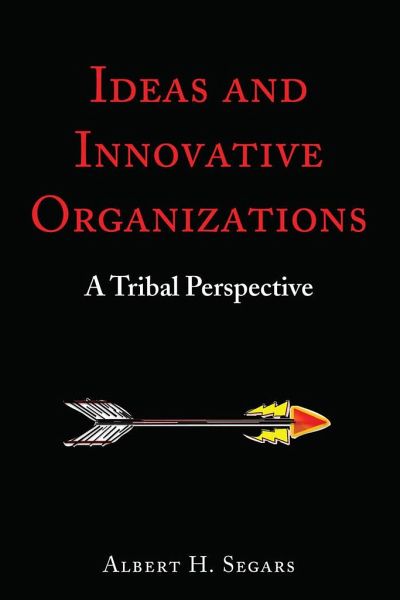
Ideas and Innovative Organizations
A Tribal Perspective
Versandkostenfrei!
Versandfertig in 6-10 Tagen
105,95 €
inkl. MwSt.
Weitere Ausgaben:

PAYBACK Punkte
0 °P sammeln!
A tribal approach to innovation is found within cutting-edge organizations that pursue ideas and initiatives that are extraordinary. This approach is driven by groups of people that have an ambitious mandate, positive values or codes of conduct, well-defined roles, robust flows of knowledge, the ability to endure hardship, an analytical focus, and a willingness to sacrifice. Together, these attributes signal a favorable predisposition to discover breakthrough ideas and navigate difficult projects. This approach is manifest in modern day super projects such as the Event Horizon Telescope as wel...
A tribal approach to innovation is found within cutting-edge organizations that pursue ideas and initiatives that are extraordinary. This approach is driven by groups of people that have an ambitious mandate, positive values or codes of conduct, well-defined roles, robust flows of knowledge, the ability to endure hardship, an analytical focus, and a willingness to sacrifice. Together, these attributes signal a favorable predisposition to discover breakthrough ideas and navigate difficult projects. This approach is manifest in modern day super projects such as the Event Horizon Telescope as well as historical initiatives such as the invention of flight by the Wright Brothers. For leaders and team members, the tribal framework provides a perspective for measuring the capacity of a team to generate novel ideas and see those ideas through to a successful conclusion.














